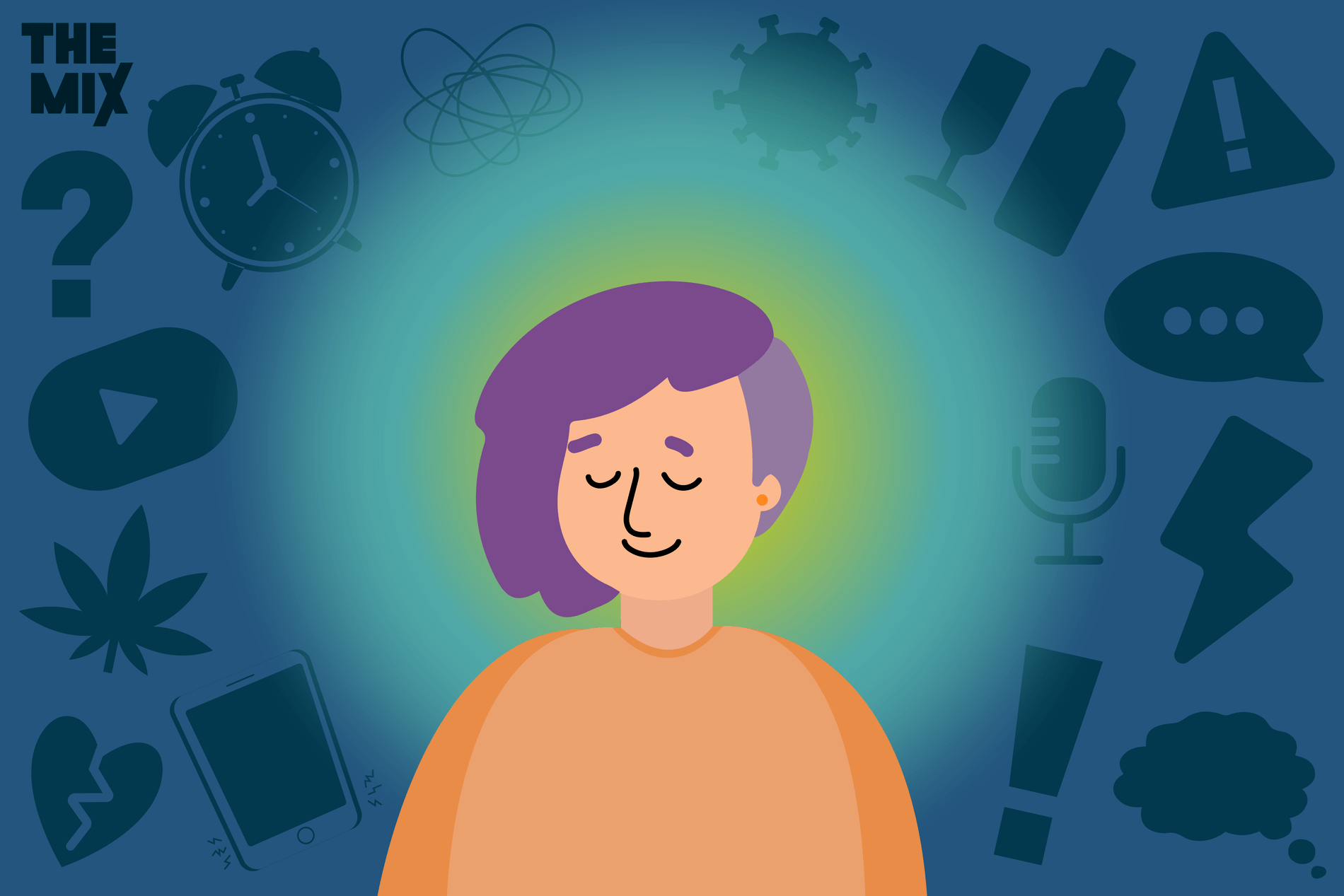What is a dopamine detox?
Wellness trends have come and gone over the years. Dopamine detox (or fasting) is a rather popular one that’s been lingering for quite some time. While the term has a nice ring to it, The Mix explores whether it's worth it.

This article was written by Mia Barnes. Mia is a health and wellness freelance writer with expertise in self-care and mental health. She is the Founder and Editor-in-Chief of the online publication, Body+Mind magazine.
Defining Dopamine
Dopamine is a hormone made in the brain. Not to be confused with serotonin’s calmness, the former focuses on your overall motivation. You can receive both on happier occasions, but dopamine is more prominent when it involves a situation where you feel satisfied and rewarded.
For example, you take a brain break by going on social media after a morning of work. All those little fun videos give you a little boost of dopamine that helps you feel rewarded for everything you’ve accomplished so far.
Dopamine imbalances influence several mental health conditions. Drugs like cocaine send a boost of dopamine to the brain that makes you feel pleasure. These substances are addictive, which throws off your emotional levels and causes the body to produce less dopamine naturally.
What Happens in a Dopamine Detox
A dopamine detox aims to decrease impulsive behaviours by minimising stimulants associated with an unhealthy amount of gratification. Like other forms of fasting, you need to abstain from exposure, consumption and other routine activities with these items.
Too many objects, from food to alcohol and so on, can result in dopamine overload when taken excessively. Thus, dopamine fasting would pull you back from the overstimulation — fewer stimuli means less reliance on those objects.
Is a Dopamine Detox Healthy?
A dopamine detox is well-intentioned but unhealthy for you. Your brain is the primary dopamine producer, responsible for your motivation. It’s behind many physical and mental behaviours, from memory, focus, stress response, movement, learning and more.
To minimise distractions, consider other forms of psychological conditioning instead. The number of times cognitive behavioural therapy courses were given increased from 38.5% to 46.3% in 2022. In addition to seeking mental health support, you can set up ways to regulate your emotions.
Focusing on Dopamine Regulation
Dopamine is necessary to function and even enjoy life. Rather than performing a total detox, try to alter your lifestyle and regulate the stimulants.
1. Get Rid of the All-or-Nothing Mindset
Life should not be a “this or that” competition. It’s much more complex than you would think, and it’s all the better for it. Rather than refraining from activities that result in unhealthy compulsions, think about how to moderate them instead.
Scrolling on social media is quite gratifying. However, to avoid becoming too dependent on the dopamine it releases, try to limit screen time to just 10 minutes. Not getting carried away is much better than absolute deprivation.
2. Find Healthy Coping Mechanisms
Most people seek a dopamine boost because they’re stressed. Try to swap these activities for healthier coping mechanisms. Here are a few examples:
- Play music: Put the glass of wine down and listen to your favourite songs, dancing to the beat for that little dopamine boost. Whether you enjoy the latest pop hits or adore rock classics, blast them on speaker and have fun.
- Walk your pet: Watching your pet wag their tail or slink up the pavement is relatively enjoyable. Take a quick pause from your day to bring them outside. You can also relish the sunshine and outdoor sights.
- Have a home spa day: Call it a night and bring your skincare products to the bed. Put on a face mask and watch a show, or take an indulgent bath.
- Meet with friends: Seeing friends can be a lovely dopamine boost. Set up a night and just catch up with one another.
3. Consider Productivity Efforts
Some people think of dopamine as a distraction from productivity. However, you may have to boost your concentration toward those endeavours more. Think of your goals and how to best achieve them without minding the dopamine.
Say you want to improve your health. Create a realistic schedule and meal plan you can stick to. Records are also key to keeping yourself accountable. In the UK, about 48% of people have tracked their exercise with a device or app, while 30% log in their weight or diet.
4. Keep Track of Your Emotions
Have you been having way too much dopamine, or has there been too little of it lately? Track your mood and see what happens, especially after making these lifestyle changes. You can do this with another app or simply write it down in a journal. Be sure to add details to pinpoint what had triggered the lack or boost of feelings.
5. Celebrate Your Progress
A dopamine detox would avoid celebration since it’s too much joy. However, you must learn to indulge yourself when you make good progress in minimising your overreliance on certain activities. Just remember to pick a healthy reward. For example, if you become sober for a month, enjoy a small slice of cake or buy a new book you’ve been eyeing.
Care for Your Dopamine Levels
A dopamine detox is good in theory but harmful in practice. You want to regulate your dopamine levels and ensure they are just the right amount. Lessening distractions is different from blocking off all stimulants. Gauge what’s good for your mental health and put it into action.
Useful resources
Next Steps
- Chat about this subject on our Discussion Boards.
By
Updated on 04-Nov-2024
Sorry, comments closed
No featured article














